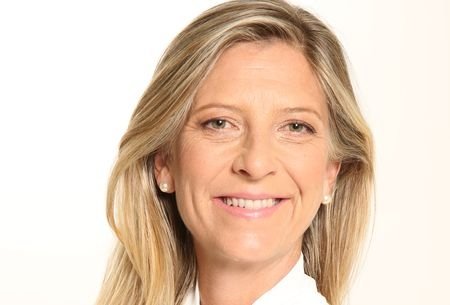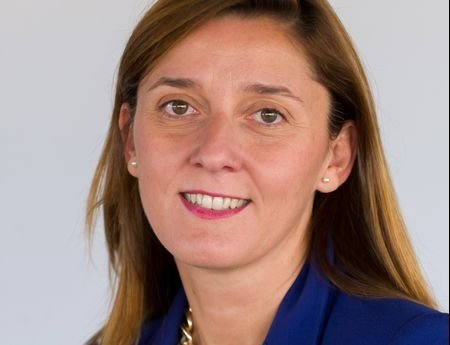The Man At The Top

The new managing partner of Uría Menéndez, Salvador Sánchez-Terán, leads what is arguably Iberia’s most highly esteemed law firm – while he can rely on the support of some highly accomplished lawyers, rivals are attempting to snatch some of the firm’s most prized assets
 Salvador Sánchez-Terán is the man who is, arguably, at the very top of the Spanish legal profession. As managing partner of Uría Menendez, he leads what many consider to be the most prestigious law firm in Spain. After all, this is a firm that has consistently been seen as having the most powerful brand in the country. So, what route has Sánchez-Terán taken to the top? He is a lawyer who is steeped in the traditions of the firm – he joined Uría Menéndez more than 30 years ago when he completed a law degree and an economics and business administration degree at the Universidad Pontificia Comillas in Madrid in 1988. In that time, he has built up a reputation as one of the best corporate and M&A lawyers in Spain and this has won him the respect of not only his peers in the market but, equally importantly, the respect of his colleagues at Uría.
Salvador Sánchez-Terán is the man who is, arguably, at the very top of the Spanish legal profession. As managing partner of Uría Menendez, he leads what many consider to be the most prestigious law firm in Spain. After all, this is a firm that has consistently been seen as having the most powerful brand in the country. So, what route has Sánchez-Terán taken to the top? He is a lawyer who is steeped in the traditions of the firm – he joined Uría Menéndez more than 30 years ago when he completed a law degree and an economics and business administration degree at the Universidad Pontificia Comillas in Madrid in 1988. In that time, he has built up a reputation as one of the best corporate and M&A lawyers in Spain and this has won him the respect of not only his peers in the market but, equally importantly, the respect of his colleagues at Uría.
Sánchez-Terán took over as Uría Menéndez managing partner in January this year, with his predecessor Luis de Carlos taking the role of senior partner, following the retirement of José María Segovia at the end of last year. There was overwhelming support for the appointment of Sánchez-Terán, which demonstrated the high esteem in which he is held by his colleagues at the firm. Another significant factor in his promotion was his close relationship with De Carlos. Not only have the two been friends for around 30 years, but their families are also close. This fraternal atmosphere at the top is indicative of the culture of the firm as a whole, according to Sánchez-Terán. “The ambience is good here, there is a proud sense of belonging,” he says.However, it is known that this sense of belonging has been severely tested in recent times. It is known that US firms, such as Latham & Watkins, have been trawling the market looking to poach top legal talent from some of Spain’s leading law firms by offering huge remuneration packages. However, despite these temptations, those lawyers at Uría Menéndez that have been targeted by rivals, have so far stayed loyal.
UNITED FIRM
Sánchez-Terán has been elected managing partner for a four-year term, with the selection process involving the creation of a screening committee as well as ‘one-to-one’ meetings with all the firm’s partners. Sánchez-Terán says there were no other candidates for the position. “We have internal cohesion, this is a united firm, there was no power struggle,” he explains. How has Sánchez-Terán’s life changed since he became managing partner? “In the morning, I get bombarded for requests for meetings, we have more than 1,100 people altogether in the firm – I also travel more, to Barcelona, Valencia, Bilbao, Lisbon, London, New York, Beijing, Brussels and Latin America, twice a year I will be visiting PPU (Uría’s Latin American arm Philippi, Prietocarrizosa, Ferrero DU & Uría), which has offices in Chile, Colombia and Peru.” And Sánchez-Terán’s travelling could be set to become even more extensive, with PPU hoping to open an office in Mexico in the near future.However, there are no plans to open any other offices.
Uría Menéndez is proud to describe itself as an Iberian firm, with partners referring to it as a “Spanish and Portuguese firm”. The firm is content with its presence in Portugal, considering the practice to be the “best in terms of quality” in the country, according to some insiders. There is also a feeling that the firm’s Portuguese operation – which has more than 120 lawyers – is adequately sized to handle the “premium work” it is targeting.Sánchez-Terán has two key priorities in his new role. The first is to strengthen its new digital practice group. “We will co-ordinate our new technology practice, this has implications for many areas, whether that is cybersecurity, criminal law, or data protection, for example,” he says. Sánchez-Terán adds that, when Uría Menéndez trains its lawyers, the firm “increasingly values technological capabilities and we are increasingly training lawyers in such skills”.
FEMALE TALENT
The second priority is “female talent”, according to Sánchez-Terán. “I wish we had more female partners and more women managing the firm – we want to send a message to female associates that they are not forced to choose between family and work life,” he says. There seems to have been some success in this respect. In the last two years, 45 per cent of new partners at Uría Menéndez have been female. However, Sánchez-Terán says ensuring women progress in the firm is a task that can be fraught with challenges. “It can be difficult to combine a strict meritocracy with the fostering of diversity,” he explains. Sánchez-Terán acknowledges that in jurisdictions such as the UK there is an increasing trend for clients to demand evidence of law firms’ diversity policies as a condition of doing business with them. However, he adds that this is not a significant trend in Spain. “We seek to promote female talent as a matter of principle rather than business need,” he says.
So what does it take to become a lawyer at arguably Iberia’s most prestigious law firm? “In candidates, we are looking for two things,” says Sánchez-Terán. “First, we’re looking for brains and second, we’re looking for a good person as this is important for internal cohesion – if they are not good people, this will change the environment,” he argues. “Also important is having a broad range of interests as this often indicates that someone is more open-minded – all the rest can be taught.”Sánchez-Terán says that Uría Menéndez can afford to be very selective when it comes to recruiting new lawyers. “We receive 5,000 applications every year and we take 70 or 80 applicants,” he says. Sánchez-Terán claims that Uría Menéndez also offers the “best training, not only legal training, but also in soft skills, accounting, negotiation and management”. He adds that the firm guarantees new recruits at least two years at the firm. “New recruits get the opportunity to work in smaller teams and have a lot of contact with partners,” he says.
To read the article in full, please download the magazine here












